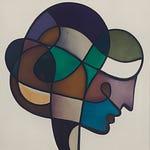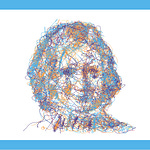One of my favorite psychology papers of all time is called “Telling More than We Can Know” by Richard Nisbett and Timothy Wilson. The argument of the paper is that humans don’t actually know why they do what they do. But they’re more than happy to give you an explanation nonetheless.
This the reason why we need a science of human behavior. If we could all just intuit the correct answers automatically, there’d be no need for researchers to figure them out. This provides a kind of template for how psychological research works: I got the human do something, and now I’m going to tell you why they did it.
And cognitive science in particular is traditionally obsessed with explaining “why” in terms of one main concept: rationality. The human did the thing because it’s a reasonable thing to do, once you take into account all the right information. And if the story is not so straightforward, then the deviation from rationality cries out for explanation. It is an account of human behavior that prioritizes practical function: we have the mental apparatus we have because it helps us succeed in the situations we’re most likely to find ourselves.
While this may be a useful explanation for behavior in the laboratory, things get more complicated once you start observing humans in the wild. What about all the stuff that isn’t explainable by mere rational utility?
Why, for instance, do I prefer some clothes over others? Why do I have a little piece of leather on my keychain when it neither holds keys nor opens doors? Why did I listen to the Men in Blazers soccer podcast religiously for two years, then suddenly forsake it entirely? Why do I insist, simply our of principle, on never drinking French wine?
In other words: what’s the “why” behind culture?
This question is the impetus for the recent book by my guest today, W David Marx. David has lived in Japan for 19 years. His first book was Ametora: How Japan Saved American Style. For most of his career he has followed and written about Japanese culture and its influence on the West. His latest book, Status and Culture, is his effort to explain the mechanisms of cultural change: why we do what we do, when we don’t need to do it.
He calls this the “Grand Mystery of Culture”: Why do humans collectively prefer certain practices, and then, years later, move on to alternatives for no practical reason?
This is where status comes in. David argues that it’s the conceptual glue that holds together the parts of human behavior that aren’t explained by rationality. How exactly it does that is the subject of our conversation.
But the thing about status is that you can always have more of it. If, as David argues, we’re all constantly chasing after status in one way or another, when does it stop? Is anyone ever satisfied with their status? Is the biggest fish in the pond happy? Or does she just want to find a bigger pond? Does status ever give us a sense of purpose or meaning? Or is it just empty calories? We get into a lot of this throughout the conversation. Yet, for me, reading David’s book raised as many questions as it answered.
Status and Culture is an entry in the genre of Epic Theory. It seeks to explain everything. Doing so requires that one leaves out quite a bit, especially when the book weighs in at a svelte 275 pages of full text. But there’s something about David’s book which makes me really love it: It is an academic book that isn’t written by an academic.
Reading it, one gets the feeling that the reader is hearing from someone who has actually been out there in the world and lived a little bit. David reads. (A lot.) But it doesn’t feel like he spends his days cooped up in a library. When he talks about culture, you know you’re hearing from someone who has participated in it—not just theorized about it. He’s not trying to explain why those other people over there are into one fashion trend and not another; he’s trying to explain the fashion trends which he’s seen in his own social circles.
Ultimately, perhaps David, like all of us, is guilty of telling more than he can know. Do the mechanics of status really explain all of culture? I don’t know. Maybe it is all about status. Maybe it’s not. But I’ll keep that little piece of leather on my keychain, just in case.
David’s new book is Status and Culture: How Our Desire for Social Rank Creates Taste, Identity, Art, Fashion, and Constant Change. It’s out now.
At the end of each episode, I ask my guest about three books that have most influenced their thinking. Here are David’s picks:
One for All: The Logic of Group Conflict
by Russell Hardin (1995)
Little known but mind blowing; the theory also explains fashions really well.The Anxiety of Influence: A Theory of Poetry
by Harold Bloom (1973)
Art as a process of being influenced by and attempting to influence. A classic.For a Critique of the Political Economy of the Sign
by Jean Baudrillard (1972)
Incisive investigation into the reason why things are valued. The denser French theory precursor to David’s Status and Culture.
Books by David:
(I hope you find something good for your next read. If you happen to find it through the above links, I get a referral fee. Thanks!)













Share this post